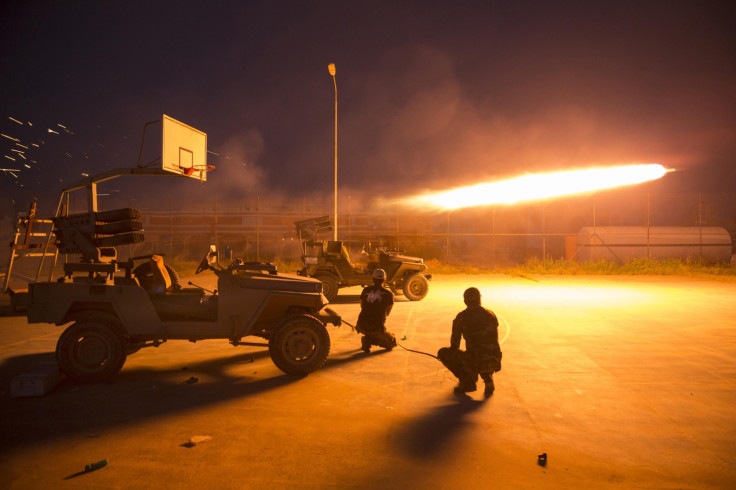Tikrit: Shia fighters say US is 'trying to steal a victory' from Iranian-backed militias and Iraqi army

Shia fighters that withdrew from the battle against Isis in Tikrit after US air strikes have claimed that America was trying to "steal a victory" from Iranian-backed militia groups.
In a statement to Arabic language Iraqi newspaper Al-Sawmariyah News, Naeem Al-Abdaoui, a spokesman for radical Shia paramilitary group Asaib ahl al-Haq, or 'League of the Righteous', said that the militias neither wanted nor needed American help fighting Islamic State (formerly known as Isis).
"We are fully capable of freeing those areas as the security forces and the resistance factions and tribes have managed to free around 90% of those areas, and America is trying to come into the remaining 10% to steal the big victory," said Al-Abdaoui.
"We won't join any battle that the United States is leading, whether that be by air or land, and refuse to enter a battle that the international coalition are joined in."
Al-Abdaoui added: "We don't trust the United States as what happened in Yemen, Pakistan, Afghanistan and Latifiya and Baiji when many people fell victim to the airstrikes."
Asaib ahl al-Haq has been fighting alongside the Iraqi army as they push north towards Mosul alongside thousands of Iranian-backed militias. Last week the army took back most of Tikrit but ISIS are still lodged in the centre of the city.
On Monday Reuters reported that Iraq was poised to ask the US for help in dislodging the militants from Tikrit. America has supported the Kurds in the north with air strikes but had so far not backed up the army on their push to Tikrit, where they are being supported by the head of Iran's Revolutionary Guard General Qassem Suleimani.
That changed on Wednesday, when the US and its European allies began bombing IS positions in Tikrit to aid the advancing army. As well as Asaib ahl al-Haq, there were reports that Kata'ib Hezbollah, another prominent militia group was pulling out.
There was an immense irony at the prospect of the US backing up groups such as Asaib ahl al-Haq and Kata'ib Hezbollah effectively fighting on the same side, given the numerous attacks on US troops by both groups in the aftermath of the Iraq war.
© Copyright IBTimes 2025. All rights reserved.




















